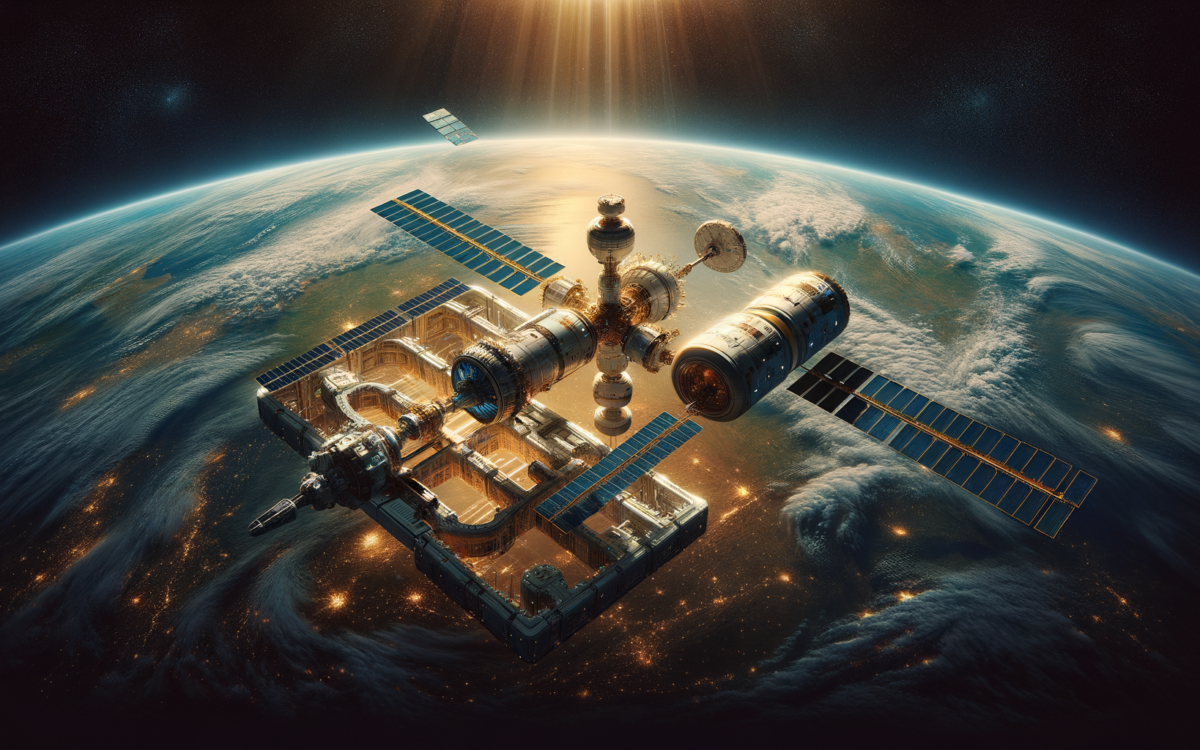SpaceX Secures $830 Million Mission to Safely Deorbit the International Space Station
- NASA selects SpaceX for a groundbreaking contract: Elon Musk’s company awarded $830 million to develop a vehicle for safely deorbiting the International Space Station by 2030.
- Ensuring a safe descent: The U.S. Deorbit Vehicle, developed by SpaceX, will enable the ISS to re-enter Earth’s atmosphere in a controlled manner, minimizing risks to populated areas.
- A collaborative international effort: The ISS, a joint operation among five countries since 1998, will rely on contributions from all partners for a responsible transition from space.
A New Chapter in Space Exploration
In an era where space travel and exploration are reaching unprecedented heights, NASA has announced a pivotal maneuver in ensuring the legacy of the International Space Station (ISS) is concluded with safety and precision. The baton for this critical mission has been handed to SpaceX, Elon Musk’s pioneering space exploration company, with a handsome contract of $830 million. This strategic move not only underlines the continued faith in private-public partnerships within the space sector but also marks a significant step in retiring one of humanity’s greatest scientific marvels responsibly.
The Mission to Safely Return the ISS
Under the terms of the contract, SpaceX is tasked with the development of the U.S. Deorbit Vehicle. This specialized spacecraft will have one critical mission: to facilitate the safe deorbiting of the ISS, ensuring its controlled re-entry into Earth’s atmosphere and subsequent disintegration, thereby minimizing any potential risks to populated areas on Earth. NASA’s decision to select SpaceX for this task underscores the agency’s commitment to protecting both our planet and its inhabitants.
Upon completion, the vehicle will be transferred to NASA’s ownership, with the agency overseeing the final mission to decommission the ISS. This aligns with broader strategies to not only ensure a safe conclusion to the station’s journey but also to pave the way for future commercial ventures and continued exploration in the near-Earth orbit.
A Collective International Effort
The ISS, a symbol of international cooperation and scientific achievement, has been home to a wide array of research and experiments benefiting humanity. Operated by a consortium of five countries (the United States, Canada, Japan, the European Space Agency member countries, and Russia), the station’s contributions span across multiple disciplines, from biology to astronomy.
The commitment to operate the ISS extends through 2030, with all partners agreeing on the importance of a responsible and safe deorbit plan. It’s a testament to the collaborative spirit that has defined the ISS project since its inception in 1998. This approach ensures that the legacy of the ISS will not only be remembered for the scientific discoveries made but also for the responsible stewardship of space exploration assets.
Jon’s Take
As we turn the page on one of the most inspiring chapters in the story of human space exploration, it’s impossible not to feel a mix of nostalgia and anticipation. The ISS has been a beacon of international cooperation and scientific progress. Now, as we prepare for its final mission, we’re reminded of the incredible journey of discovery we’ve embarked upon and the new horizons that lie ahead. Thanks to the efforts of SpaceX and NASA, the truth about our capacity for exploration and cooperation isn’t just out there—it’s right here, showcasing the best of human ingenuity and spirit.
Original Article




